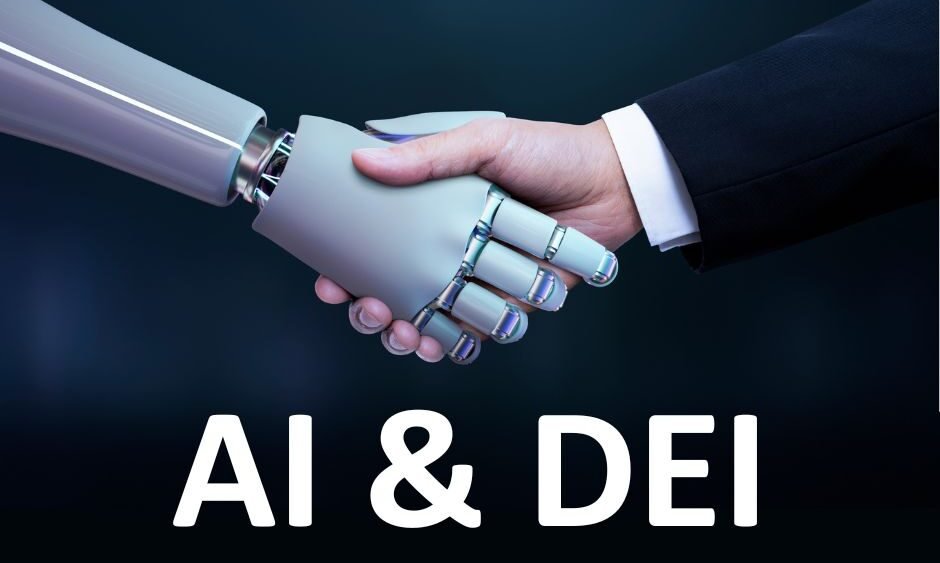Creating a thriving workplace requires a strong focus on diversity, equity, and inclusion (DEI). Artificial intelligence (AI) has become a promising tool for advancing DEI initiatives, but it’s crucial to exercise caution when utilising it. Let’s delve into the possible advantages and disadvantages of AI in recruitment and talent management, with a particular emphasis on minimising bias and promoting fairness for everyone involved.
The Promise of AI for DEI:
- Unbiased Screening: Artificial Intelligence algorithms can analyze resumes and applications based on pre-defined skills and qualifications.
- Data-Driven Insights: It can analyze vast datasets to identify areas where bias might exist. For example, revealing patterns in hiring decisions across demographics.
- Targeted Outreach: It can help identify and source diverse talent pools, expanding the reach of recruitment efforts beyond traditional channels.
- Accessibility Tools: AI-powered tools can help create more accessible interview processes for candidates with disabilities.
The Potential Pitfalls of AI for DEI:
- Biased Training Data: AI algorithms are only as good as the data they are trained on. If the training data contains inherent biases, the Artificial Intelligence will perpetuate those biases in its decision-making.
- Focus on the “Wrong” Things: Artificial Intelligence may prioritize quantifiable metrics on resumes over more intangible qualities, potentially overlooking highly qualified but less traditionally presented candidates.
- Opacity and Explainability: Many Artificial Intelligence algorithms are complex “black boxes,” making it difficult to understand how they arrived at a particular decision. This lack of transparency can lead to concerns about fairness and discrimination.
Mitigating Bias and Using AI Responsibly:
- Diverse Training Data: Use AI to find candidates with the right skills and evaluate their organisational growth potential.
- Human Oversight: Incorporate human evaluation at every stage of the hiring process. This guarantees that the conclusions made by artificial intelligence are interpreted and implemented in a just manner.
- Regular Audits & Monitoring: It is important to consistently monitor Artificial Intelligence systems for any biases that may arise and make sure to retrain them using updated data sets when necessary.
- Focus on Skills & Potential: Utilise the power of Artificial Intelligence to effectively identify candidates who possess the necessary skills and evaluate their potential for future development within the company.
AI is a powerful tool, but it shouldn’t replace human judgment in DEI efforts. Using AI responsibly helps focus on mitigating bias and ensuring fairness. Now organizations can leverage this technology to build a more diverse, equitable, and inclusive workplace.
To learn more about diversity, equity, and inclusion in the workplace, visit the India Diversity Forum. It is a platform where industry leaders come together to propel actionable discussions around DEI in the workplace.


